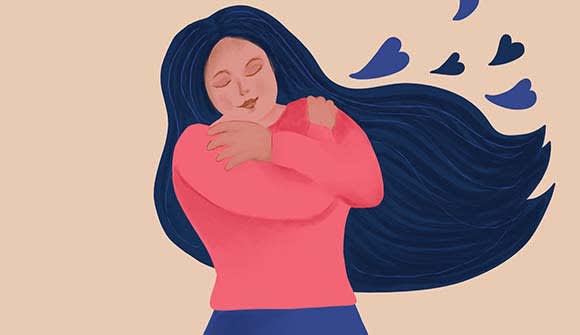Care for the caregiver
Supporting a loved one doesn’t mean putting yourself last.
Article Date:

Caregivers aren't always younger people helping aging loved ones. They could be a parent taking care of an ill child, a spouse supporting a partner with a chronic condition, one sibling helping another with a mental illness, or a friend aiding a peer who has no one else. In short, anyone can become a caregiver.
While the people and situations might be different, one thing is the same: Many caregivers are so focused on helping a loved one, they put their own needs last.
Shari Dowd, LMHC, team lead of Clinical Oncology Social Services at Baptist MD Anderson Cancer Center, said it's important for caregivers to recognize that self-care is a priority as well.
"If you don't take care of yourself, you can't do so for someone else," she said. "It's like when the flight crew reminds passengers that if the oxygen masks drop, put one on yourself first, and then help those who need it."
A burden of truth
According to the American Psychological Association, self-assessment is a first step in determining how much caregiving may be impacting you.
Dowd said those caring for others are essentially living two lives: their own and someone else's.
"It's not a normal situation. You are doing double what you might be doing on a normal day, and making choices based on someone else's needs, rather than just your own. It could impact you in many ways, including physically, emotionally and financially. We call it 'caregiver burden.'"
I'm stressed. Now what?
If you're a caregiver trying to find some relief, Dowd recommended you:
Talk to your primary care physician(PCP) so he or she can monitor your health and offer medical solutions when warranted.
Sleep and eat. Getting enough shut-eye and eating properly are important factors in staying healthy. Just 15 or 30 minutes more sleep a night can help.
Acknowledge your feelings. "Anxiety, depression, fear, guilt, sadness, grief, resentment and anger are all normal emotions for a caregiver," said Dowd. "Talk about them in a safe setting with a good friend, a professional counselor or your PCP."
Focus on the problem, not the emotion. "If you're anxious or fearful about your loved one's medical issue, learn more about it. You may feel more competent and in control. If you aren't sleeping because you're worried about your loved one getting up in the middle of the night and falling, create something that alerts you when he or she is up and moving rather than lying awake 'just in case.' You can't control or change what the person is going through, but you can change the environment to make it safer," said Dowd.
Ask for help. "Look around. Who's there to support you? Nobody can do this alone. Think about who you can ask for help. If you feel alone, reach out to friends, family or support groups."
Do something for yourself. If you have help and can leave the house, do an activity you enjoy. If you can't leave, try to read, write or watch TV – just make sure it's something you like to do. And don't feel guilty about taking the time. You can't care for a loved one if you are neglecting yourself.
"Being a caregiver changes you, and it does have an effect on your life. Don't lose yourself in the process," advised Dowd.
If you're having trouble adjusting to this new role or relieving the stress on your own, it may be beneficial to seek professional help.
The mental health professionals at Baptist Behavioral Health can provide support to caregivers and connect them with resources to alleviate their burden. Call 904.376.3800 for information or to schedule an appointment.
Source: American Geriatrics Society caregiver self-assessment questionnaire



